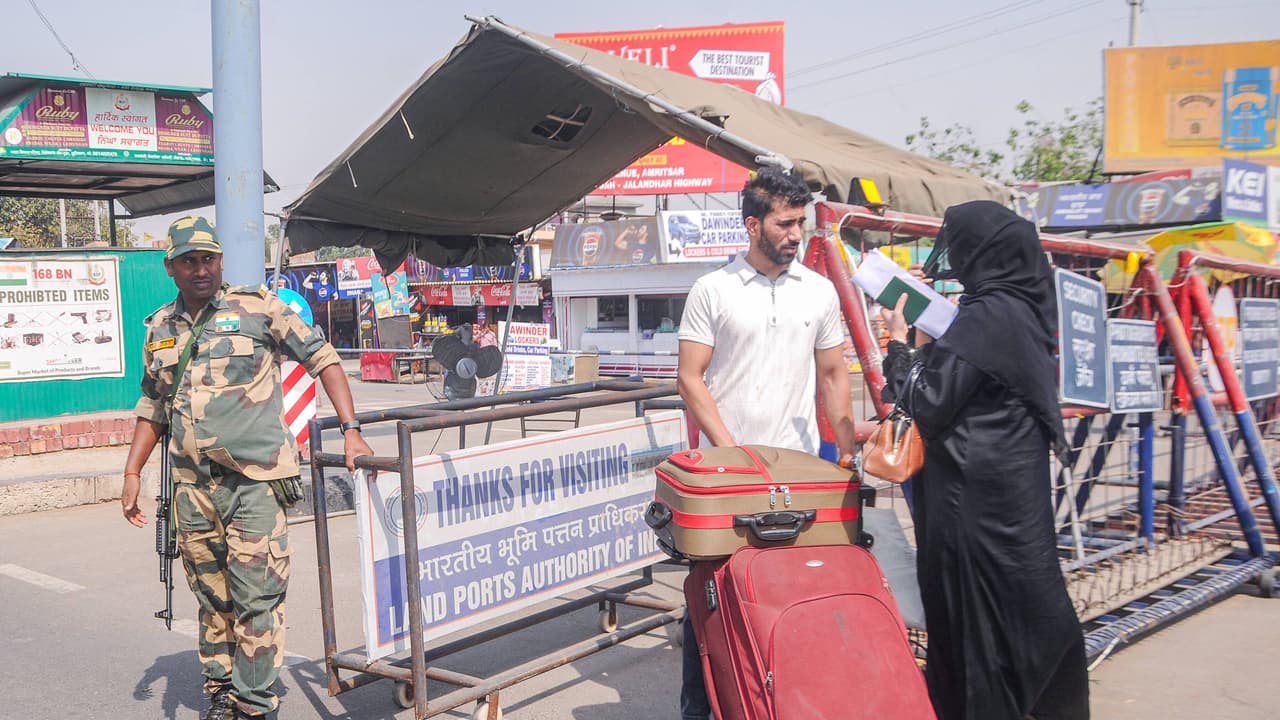Pakistan has opened Attari-Wagah border gate after 24 hours and has started taking back its citizens from India. The border was completely shut on Thursday.
After a tense 24-hour standoff, Pakistan on Friday reopened the Attari-Wagah border crossing and began accepting its stranded citizens from India.

The gate finally reopened on Friday morning, allowing groups of Pakistani nationals—many of whom had been stuck since the previous day—to cross over.
The Attari-Wagah border crossing between India and Pakistan was completely shut on Thursday, May 1, amid escalating tensions following the Pahalgam terror attack in Jammu and Kashmir. The attack, which occurred on April 22, resulted in the deaths of 26 civilians, including 25 Indian tourists and one Nepali national. India has attributed the assault to the Islamic Resistance Front, an offshoot of the Pakistan-based Lashkar-e-Taiba, and accused Pakistan's "deep state" of complicity.
In response, India initiated a series of diplomatic measures, including suspending the Indus Waters Treaty, expelling Pakistani diplomats, and closing the Wagah-Attari border. Pakistani nationals holding short-term visas were given a deadline to leave India, leading to a significant movement of people across the border over the past week. By April 30, 911 Pakistani nationals had departed India, with 125 leaving on Wednesday alone.
However, on Thursday afternoon, shortly after the border was sealed, several Pakistani nationals who were sent to the crossing by Indian immigration authorities found themselves unable to return home. Reports indicate that Pakistani authorities refused to open the gate for their citizens, leaving them stranded at the border.
This development has added to the uncertainty and confusion surrounding the border closure, highlighting the complexities of the diplomatic fallout from the Pahalgam attack.


